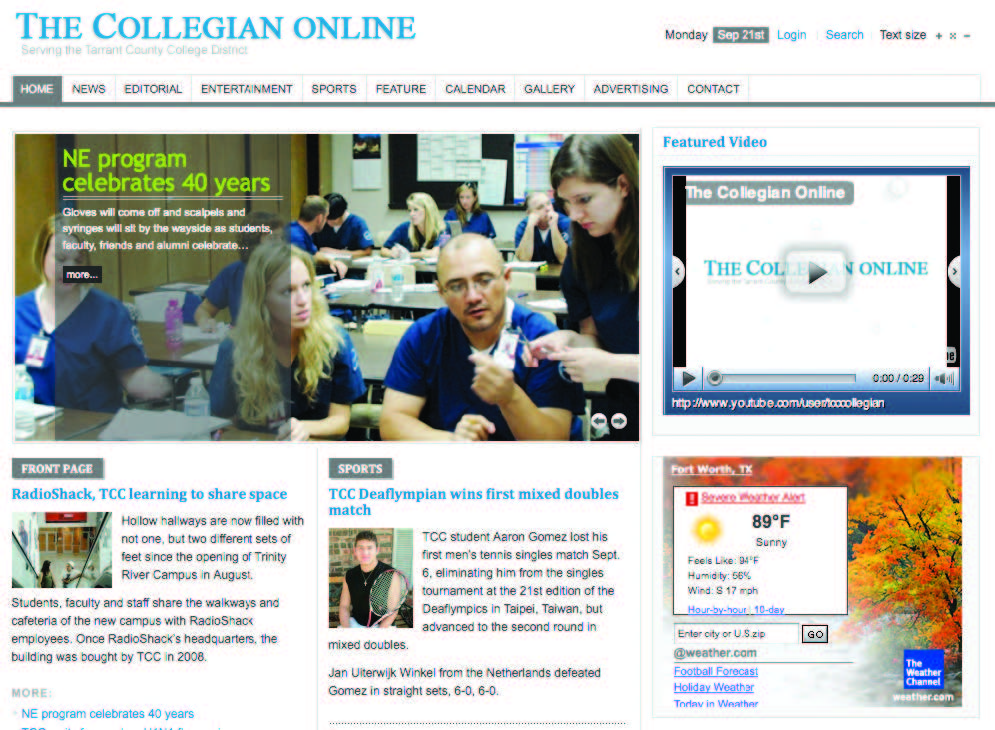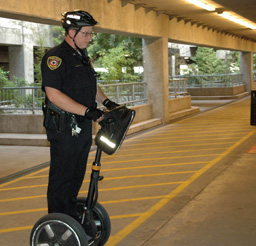By Karen Simonson/reporter
Students learned the negative effects of smoking at the Student Success Conference on NW Campus last week.
In Butt Out: The Negative Effects of Smoking, adjunct sociology and psychology instructor Joe Reed explained the negative effects of smoking and techniques to quit.
“Part of the motivation behind this was the non-smoking policy,” he said. “We thought if we were asking you not to smoke, we should help you.”
Special services coordinator and co-chair of the Student Success Committee Lily Calzada agreed.
“There’s a lot of things that go into making a student successful including being healthy, not just as a student, but in life,” she said.
Smoking is “cunning, baffling and powerful,” Reed said. “When you took that first hit off a cigarette, it was for a purpose.”
The presentation, based on the book Changing for Good, outlined the stages of change and how to succeed.
“I’m not asking anyone to go cold turkey,” he said. “The average person relapses three to four times. I highly suggest if you relapse, you don’t stay out there. Smoke your one cigarette and come back in. Don’t smoke the whole pack.”
Reed said smoking, the world’s most prevalent and recognizable health risk, has been dubbed “humankind’s deadliest habit.
“It is doable to quit if you want to,” he said. “Do you really believe you could quit smoking if you wanted to?”
Student Leah Rogers said she attended the presentation to learn how to stop her smoking habit.
“I’ve wanted to quit for a long time. It’s just so hard once you get addicted,” she said.
Pre-contemplation, contemplation and preparation are the three stages of change, Reed said. Students should ask themselves which stage they are in.
In pre-contemplation, the smoker “knows” smoking causes lung, mouth and larynx cancer, peptic ulcers, heart disease, stroke, emphysema, low birth weight in babies, facial wrinkles and chronic bronchitis. But the smoker has minimized the consequence and, therefore, chosen not to quit.
Contemplation is the next stage, where smokers are guided by their knowledge of the consequences and begin to identify the “trigger.” Reed said people smoke to cope with stress, emotions, social situations, image and nicotine cravings.
“Monitor your smoking for a couple of days and become aware of how often you smoke and the reasons,” he said.
Reed said smokers should then enter the preparation stage by making a commitment.
Creating the right environment is important to succeed, Reed said.
“Seek social support, go public and ask for help from family and friends,” he said. “Chew sugarless gum, take deep breaths, remind yourself your urges will peak and then leave, exercise, relax and give yourself an appropriate award for not smoking, such as a nice meal or a movie.”
He also invited students to utilize on-campus counseling and health services.
“Don’t try and do it alone,” he said. ”Reach out and ask for some help.”
Calzada said students can receive three or four free counseling sessions in the NW Campus counseling center, located in WCTS 1110 and open 8 a.m.-7 p.m. Monday-Thursday and 8 a.m.-5 p.m. Friday.

























